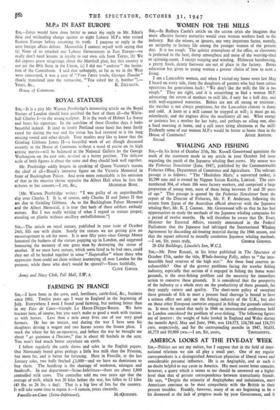FARMING IN FRANCE
have been in the corn, seed, fertilisers, cattle-feed, &c., business since 1901. Twelve years ago I went to England in the beginning of July. Everywhere I went I found good farming, but nothing better than in my Pays de Caux—triangle Le Havre-Dieppe-Rouen. We have tractors here, of course, but you won't make as good a work with tractors as with horses. Less than a mile away lives one of our very good farmers. He has no tractor, and during the war I have seen his daughters driving a wagon and two horses across the frozen plain. I stock the wheat for his co-operative, and before the war he brought me about "40 quintaux a Phectare," that is about 60 bushels to the acre. You won't find much better anywhere on earth.
I follow regularly the cattle shows and sales in the English papers. Our Normandy breed gives perhaps a little less milk than the Friesian, but more fat, and is better for fattening. Here in Fauville, at the last January sales, two bulls fetched £1,000—and we have no dominions to buy them. The handicap is the shortage of workmen, nitrogen and foodstuffs. In our department—Seine-Inferieure—there are about 1,800 controlled milk cows. The controller told me two years ago that the average of milk, which was 20 kilos before the war, has fallen to 12 kilos (43 lbs. to 26 lbs. a day). That is a big loss of fats for the country. It will take some time to regain it.—I remain, yours sincerely, Fauville-en-Caux (Seine-Inferieure). MAQUESNEY.


































 Previous page
Previous page